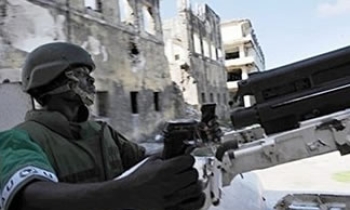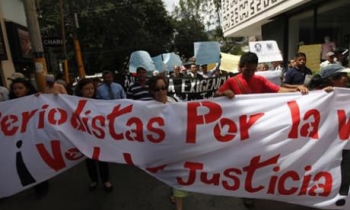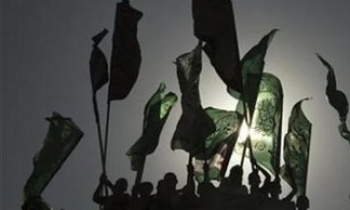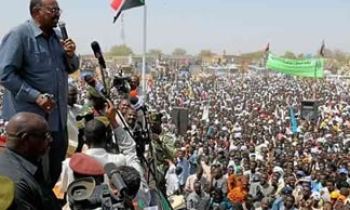Nepal police stormed a community FM radio station, arrested four journalists and seized equipment in order to block a BBC interview with Maoist leader Prachanda late Sunday. "The legal action has been against Radio Sagarmatha as it has been found that topics prohibited or banned has been broadcast," state-run Radio Nepal quoted a statement by the Nepal information and communications ministry as saying.

A two-member police team raided the radio station and seized transmission equipment and also arrested four journalists and a technician � Durga Karki, Dipak Bahadur Aryal, Dipak Raj Pandey and Punya Bhandari and Rajendra Rijal, Kantipur Online reported. Karki was later released. The others have been detained at the district police office in Lalitpur.
Officials with the FM station told Nepalnews that armed security personnel also left behind two letters. One of the letters asked the FM station to shut down its entire transmission until further notice. The other said the authorities were taking away some radio equipment for investigation. The station had already decided not to play the Prachanda interview and switched over to music when it ran on the BBC service.
Radio Sagarmatha regularly relays the BBC Nepali Service, which carried an exclusive interview with Maoist leader Prachanda alias Pushpa Kamal Dahal � the first radio interview given by him in the last ten years � on Sunday. He spoke about the recent understanding between the seven-party alliance and his party.
According to a NepalNews report, seven FM stations outside capital Kathmandu were also forced by the authorities to drop their transmission of BBC Nepali. They also suspened the transmission of BBC World Service over 103 FM owned by the state-run Radio Nepal from Sunday evening. Radio Nepal has been blocking news broadcast of BBC over 103 FM since the royal takeover in February this year.
The chairman of Radio Sagarmatha, Laxman Upreti, termed the government action as "a dagger to the heart of the radio revolution in Nepal." Upreti, in a statement issued by the radio station, said, "Nepal has been the South Asian country to pioneer the role of FM radio in informing the public and Radio Sagarmatha has been the vanguard of this movement. The action by the government is a dagger to our radio revolution."
"This is a blatant violation of people's right to free speech and free expression," said Ghamaraj Luitel, spokesperson of the Save Independent Radio Movement (SIRM), which will be launching series of protests against the government-imposed ban on FM radio stations from airing news bulletins since the royal takeover of February 1, NepalNews reported.

"To close down a radio station that is reputed all over South Asia, seize its equipment and arrest journalists is not only illegal, it is also an uncivilised act," said Shiva Gaule, acting president of the Federation of Nepalese Journalists (FNJ).
General secretary of the Federation of Nepalese Journalists Mahendra Bista told NewsLineNepal that the incident was yet another example of state terrorism, done under the pretext of implementing the so-called media ordinance. He said the journalists were arrested on the charge of "supporting the terrorist" even when the FM station had discontinued broadcasting the BBC programme.
"The use of intimidation tactics by the Nepalese Government in attempts to silence the media and dissenting, critical voices is unacceptable," said International Federation of Journalists (IFJ) president Christopher Warren. "The government's attempts to quell all dissenting voices will only result in the complete quashing of all democratic space in Nepal, leaving little room for a peaceful solution to the ongoing conflict the king used as an excuse for the February 1 coup, " said Warren.
Last month, the government banned news on private stations and introduced harsher fines and prison terms for defamation. It also banned criticism of the royal family. Criticism of the King and independent reporting of the anti-monarchy Maoist revolt have been banned since King Gyanendra fired the government on February 1, a move that sparked global criticism and the suspension of some military aid. King Gyanendra says his action was the only way to end the nine-year-old Maoist revolt that has cost more than 12,500 lives and shattered the economy.









